 “Lord, whether I will it or not, save me…” Part 1John was born in the sixties of the twentieth century at the height of the Cold War, when the prevailing stereotypes about his father’s homeland were purely negative, so that Russia (the USSR at the time) was considered an evil empire and Russians the enemies of America.
“Lord, whether I will it or not, save me…” Part 1John was born in the sixties of the twentieth century at the height of the Cold War, when the prevailing stereotypes about his father’s homeland were purely negative, so that Russia (the USSR at the time) was considered an evil empire and Russians the enemies of America.
“>Part 1
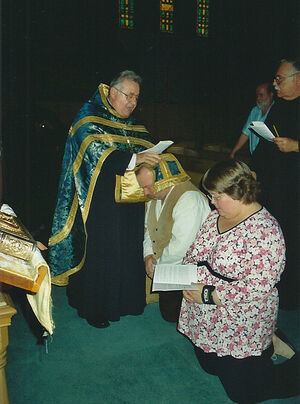 John and Rebecca, who converted to Orthodoxy in 2006, became parishioners of the Church of Apostles Peter and Paul, and now they could sing and read together in the choir. The friendly parish consisted of Orthodox Christians of different nationalities and colors—Russians, Americans, Czechs, and Mexicans. Their daughter Alyona was born that same year.
John and Rebecca, who converted to Orthodoxy in 2006, became parishioners of the Church of Apostles Peter and Paul, and now they could sing and read together in the choir. The friendly parish consisted of Orthodox Christians of different nationalities and colors—Russians, Americans, Czechs, and Mexicans. Their daughter Alyona was born that same year.
Most of the photos from the family archive depict John, his daughter and his wife. Since Alyona’s birth, her dad has always been close by—at home, on vacation, or at school. A big smile, a kind look full of love for his loved ones and the people around him are in every photo.
After John graduated from university in 2007, he and his family decided to move to the small town of Eau Claire for a residency in family psychology. To accomplish this, John took a out student loan to open a clinic and purchase a small farm, where he and his wife showed the talent of their ancestors who had tilled farmland.


After working for two years, John realized that because of compulsory clinical practices that existed in American medicine (such as abortion), he was unable to build a professional career without violating Christian commandments. As a result, he had to quit working in the medical field. Having worked as a mechanic for a company that sold biogas purifying and refining systems, he became unemployed in 2012 after his employer went bankrupt. Fr. John recalls that his job of mechanic helped him develop a sense of humility when he, a former nuclear physicist, had to clean dirty filters. Unemployed, he wasted no time passing an industrial engineer license exam, and in 2013 he found a job in his profession. In 2014, after living in misery for ten years, Rebecca was diagnosed with Bekhterev’s disease.
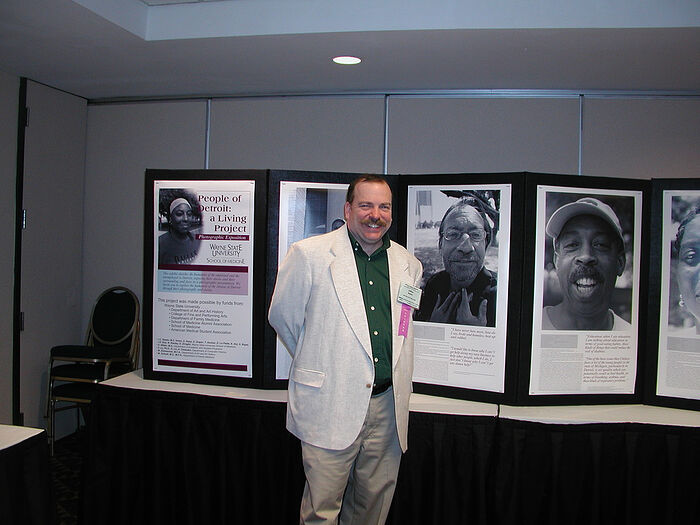
In Seattle, their daughter Alyona, who had already learned the basics of reading and writing in Russian at home, entered the Orthodox school at St. Nicholas Cathedral, one of the oldest Orthodox churches in the Americas. It was founded in 1932 by Russian immigrants, primarily the former Imperial Navy officers who found political refuge there from the Bolsheviks. Vladyka 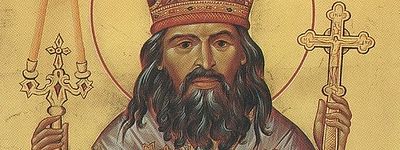 St. John (Maximovich) of Shanghai and San Francisco
St. John (Maximovich) of Shanghai and San Francisco
“>John of Shanghai, now glorified among the saints, departed to the Lord in 1966 in one of the cathedral’s rooms while he was staying there during an archpastoral visit. The Stashko family had been parishioners of the St. Nicholas Cathedral for seven years before their move to Russia. John sang in the cathedral choir, which at times numbered as many as twenty-five singers and included a former opera singer named Harry.
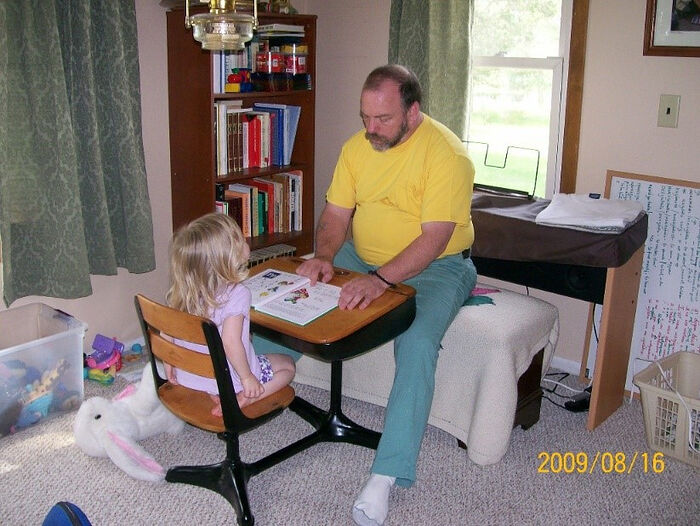
Classes at the Orthodox school at the cathedral held on Saturdays included only humanity subjects, such as teaching of the Law of God, Orthodox chants, and the Russian language, literature and culture. Alyona studied all other subjects at home. Her mother taught the complete curriculum in English, while her father supplemented her knowledge in Math, Physics, and Science in Russian. Alyona spoke Russian from early childhood, as her father used to read to her only Russian-language books, despite being unable at times to understand the words he was reading, referring to a dictionary. John considers himself responsible for his daughter’s upbringing, and her spiritual state in particular.
John displayed a well-rounded personality from childhood. He refused to watch television in his youth, believing that television programs, and especially television advertising, had a negative effect on a person, left intrusive imagery and melodies in the memory, thus harming one’s spiritual state. He also believed that rock music caused despondency. When he was twenty-four, he decided to learn to play the violin. As a result, he worked at it for ten years with the help of a tutor and later switched to cello. He misses this instrument greatly—he had to leave it back in the USA and there is no way to to retrieve it in the future.
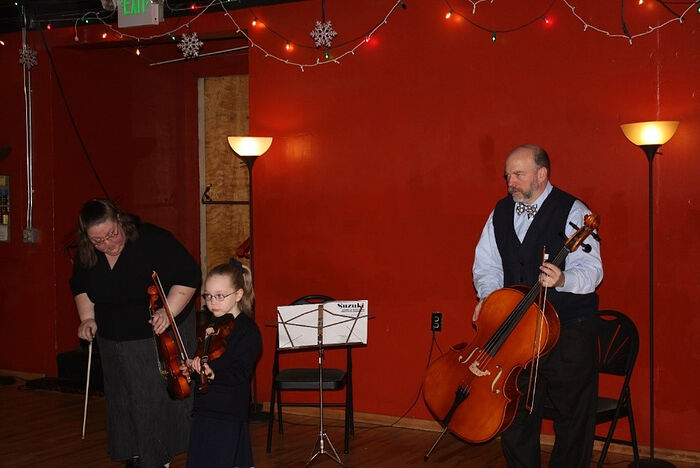
John prefers using literary English and avoids slang. He is thrilled with genuine literary Russian language in the belief that man differs from the rest of creation because he can speak, and we are given the skill to use words in order to communicate with God. He can’t tolerate swearing, and prefers to stay silent. Besides English and Russian, he studied several other languages, including Japanese. When we mentioned the Holy Hierarch Innocent of Moscow in the story about the miraculous help through prayer in front of the “Sitka” Icon of the Mother of God, the name of the Holy Hierarch Nicholas of Japan also came up, as he was spiritually connected with the Holy Hierarch Innocent. John was in Japan before he converted to Orthodoxy and participated at Catholic church services there. He sang the prokeimenon in Japanese to commemorate the trip.
In 2018, John came to the Russian city of Ust-Ilimsk in the north of the Irkutsk Region to work on the “Technological re-equipment of the evaporation station” project at a local forest industry complex. In his free time, he began attending services at the Church of All Saints Who Shone Forth in the Russian Land, and with the blessing of its rector Archpriest Alexander Bely-Kruglyakov he joined the church choir.
When Rebecca and Alyona arrived to Ust-Ilimsk, it became obvious that his wife’s illness was receding in the seemingly harsher climate conditions of the Russian North. They bought an apartment where both mother and daughter were staying while John entered the correspondence department of mechanical engineering department at Togliatti State University. At the height of the coronavirus epidemic in 2020, John decided to give up his position in the US and reside in Ust-Ilimsk, having obtained a temporary residence permit in Russia. In 2021, he earned a Bachelor’s degree in Mechanical Engineering from TSU, and thanks to his education, he was able to obtain Russian citizenship. As a regular member of the choir, he was ordained a Reader.
At the end of April 2022, Metropolitan Maximilian of Irkutsk and Angarsk came with an archpastoral visit to the Church of All Saints Who Shone Forth in the Russian Land in Ust-Ilimsk. John was chanting as he always did at the evening service on the Sunday of Antipascha. Upon hearing him singing at church, Vladyka blessed John to become a deacon. As he recalled his life’s journey, John said he undoubtedly had great doubts about this blessing. There were times in his life when his soul became attached to earthly things and worldly blessings. Besides, extra knowledge often blinds our minds—there are only few among us who made discoveries in the area of nuclear physics! It is not without reason that John’s previous life was so close to the mad rich man’s from the passage in the Gospel of Luke, chapter 12, verses 16–21. But other stories from his life also come to mind, especially in his childhood while still a young boy, he pretended to be a priest; or as a young man he wished he could stay at church forever after attending services.
He pondered Vladyka’s blessing for a week. Rebecca also supported his decision to be ordained. The Lord was leading his servant John towards this moment all his life along a rather complicated and winding path. Reading about the life of the Church abroad, our fellow countrymen and compatriots who had to leave their homeland during the terrible revolutionary years, we marvel at their innocence and the depth of their faith, which was as natural to them as breathing. God created Man to be His co-creator, that’s why it isn’t surprising that a man can combine such vast life experience—physics and poetry, medicine, knowledge of languages, intensive music studies, and singing talent. Our abilities and talents are not limited but need to be developed, so that we don’t turn our life into a downward spiral.
During challenging moments of life, John always reads the  Lord, Thou Hast Been our Protection in All GenerationsThe hypnotist lost his temper, shouting so hard that the veins on his face and arms swelled from the tension. He pressed his hands against my shoulders. Finally, covered in sweat, he fell on the leather couch and muttered, “I can’t do anything with her.”
Lord, Thou Hast Been our Protection in All GenerationsThe hypnotist lost his temper, shouting so hard that the veins on his face and arms swelled from the tension. He pressed his hands against my shoulders. Finally, covered in sweat, he fell on the leather couch and muttered, “I can’t do anything with her.”
“>Psalm 90 of David. Because of his deep reverence for the Mother of God, he loves to sing the Magnificat of the Most Holy Mother of God from Matins, especially its first verse “The Theotokos and the Mother of Light, let us magnify in hynms…” which is now a part of his ministry.
The amazing story of Fr. John’s life journey corresponds to the words of the Akathist written by Metropolitan Tryphon (Turkestanov)Tryphon (Turkestanov), Metropolitan
“>Holy Hierarch Tryphon Turkestanov, “ Akathist Hymn Glory to God for All ThingsEither there is a God whom we trust or “we are of most men to be pitied.” I prefer to give thanks.”>Glory to God for All Things.”
Akathist Hymn Glory to God for All ThingsEither there is a God whom we trust or “we are of most men to be pitied.” I prefer to give thanks.”>Glory to God for All Things.”
In the wondrous blending of sounds, it is Your call we hear. In the harmony of many voices, in the sublime beauty of music, in the glory of the works of great composers, You lead us to the threshold of paradise to come, and to the choirs of angels. All true beauty has the power to draw the soul towards You and make it sing in ecstasy: Alleluia!
The breath of Thy Holy Spirit inspires artists, poets, scientists. The power of Thy supreme knowledge makes them prophets and interpreters of Thy laws, who reveal the depths of Thy creative wisdom. Their works speak unwittingly of Thee. How great Thou art in Thy creation! How great Thou art in man!
Glory to Thee, showing Thy unsurpassable power in the laws of the universe.
Glory to Thee, for all nature is filled with Thy laws.
Glory to Thee for what Thou hast revealed to us in Thy mercy.
Glory to Thee for what Thou hast hidden from us in Thy wisdom.
Glory to Thee for the inventiveness of the human mind.
Glory to Thee for the dignity of man’s labor.
Glory to Thee for the tongues of fire that bring inspiration.
Glory to Thee, O God, from age to age.
On June 26, 2022, Metropolitan Maximilian of Irkutsk and Angarsk ordained John to the diaconate.
The diaconal ordination took place on the day of the patronal feast of the churches of All Saints Who Shone Forth in the Russian Land in both Ust-Ilimsk and Bratsk. It’s been truly providential, just like everything else in our life. Through the prayers of his patron saint the Holy Hierarch John Chrysostom, his parents and grandparents, the dreams of a small American boy with a Russian soul named John Chrysostom to live in Russia and always remain at church in order to serve the Lord have come true. He walked towards it all his life, unable to find complete satisfaction from any of his numerous activities and hobbies, because the Lord was preparing him to serve at the altar of God—the ministry that is loftier than anything else on earth.
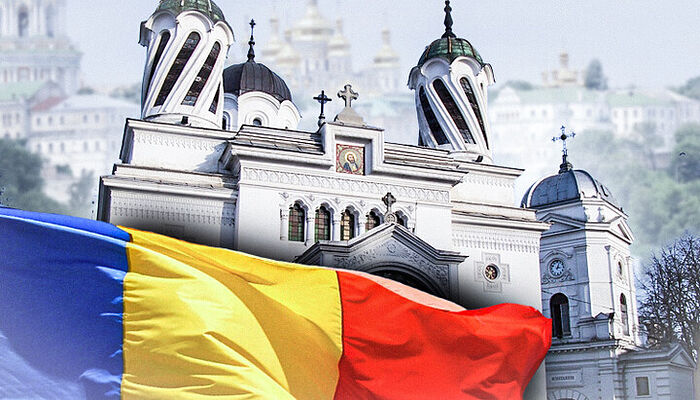
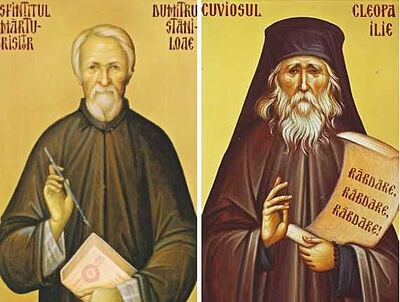 Romanian Church preparing to canonize Elder Cleopa, Fr. Dumitru Stăniloae, Elder Gherasim (Iscu)At its session on February 25, the Holy Synod of the Romanian Orthodox Church decided to begin the canonization process of a dozen confessors and missionaries who suffered under Communism, to mark the 140th anniversary of autocephaly and the 100th anniversary of the establishment of the Patriarchate in 2025.
Romanian Church preparing to canonize Elder Cleopa, Fr. Dumitru Stăniloae, Elder Gherasim (Iscu)At its session on February 25, the Holy Synod of the Romanian Orthodox Church decided to begin the canonization process of a dozen confessors and missionaries who suffered under Communism, to mark the 140th anniversary of autocephaly and the 100th anniversary of the establishment of the Patriarchate in 2025. Romania: Elders Paisie (Olaru) and Dionisie (Ignat) proposed for canonizationThe names of two more of the holy elders under consideration for canonization in 2025 by the Romanian Orthodox Church were revealed over the weekend.”>Elder Paisie (Olaru), Elder Dionisie (Ignat), and several others.
Romania: Elders Paisie (Olaru) and Dionisie (Ignat) proposed for canonizationThe names of two more of the holy elders under consideration for canonization in 2025 by the Romanian Orthodox Church were revealed over the weekend.”>Elder Paisie (Olaru), Elder Dionisie (Ignat), and several others.  Persecuted Metropolitan Longin undergoes another heart surgeryThough officially recognized as a Hero of Ukraine for having adopted hundreds of orphans, the state now considers him an enemy because he staunchly remains within the Orthodox Church.
Persecuted Metropolitan Longin undergoes another heart surgeryThough officially recognized as a Hero of Ukraine for having adopted hundreds of orphans, the state now considers him an enemy because he staunchly remains within the Orthodox Church. Hundreds rally in support of persecuted Metropolitan Longin of UOC in Romania and MoldovaThe protestors demanded that the Ukrainian authorities stop the aggression against the faithful, guarantee Ukrainians the right to freedom of religion, and ensure the safety and freedom of Met. Longin.”>faithful in Romania and Moldova.
Hundreds rally in support of persecuted Metropolitan Longin of UOC in Romania and MoldovaThe protestors demanded that the Ukrainian authorities stop the aggression against the faithful, guarantee Ukrainians the right to freedom of religion, and ensure the safety and freedom of Met. Longin.”>faithful in Romania and Moldova.  Romanian Holy Synod reiterates call for Moscow-Constantinople dialogues to resolve Ukrainian issueThe Synod recommended that the Moscow and Constantinople Patriarchates find a solution to the conflict through dialogue, preserving the unity of the faith, respecting the administrative-pastoral freedom of the clergy and faithful of Ukraine (including the right to autocephaly), and restoring Eucharistic communion. In their October statement, the bishops emphasized that synodality is “a permanent necessity in the life of the Church.”
Romanian Holy Synod reiterates call for Moscow-Constantinople dialogues to resolve Ukrainian issueThe Synod recommended that the Moscow and Constantinople Patriarchates find a solution to the conflict through dialogue, preserving the unity of the faith, respecting the administrative-pastoral freedom of the clergy and faithful of Ukraine (including the right to autocephaly), and restoring Eucharistic communion. In their October statement, the bishops emphasized that synodality is “a permanent necessity in the life of the Church.” Ukrainian schismatics willing to create Romanian vicariate but not to accept re-ordination to facilitate recognition by other ChurchesIn particular, Epiphany considers it acceptable to create a Romanian vicariate within the OCU for the Romanian faithful living in Bukovina.
Ukrainian schismatics willing to create Romanian vicariate but not to accept re-ordination to facilitate recognition by other ChurchesIn particular, Epiphany considers it acceptable to create a Romanian vicariate within the OCU for the Romanian faithful living in Bukovina. Ukrainian schismatics to create Romanian Vicariate without a single Romanian parishThe Romanian Synod stated in February that its evaluation of the Ukrainian issue largely depends upon the fate of the Romanian faithful in Bukovina who are concerned about preserving their ethnic and linguistic identity.”>July 2019, though the OCU did not have a single Romanian parish at that time and nothing seems to have come of these plans.
Ukrainian schismatics to create Romanian Vicariate without a single Romanian parishThe Romanian Synod stated in February that its evaluation of the Ukrainian issue largely depends upon the fate of the Romanian faithful in Bukovina who are concerned about preserving their ethnic and linguistic identity.”>July 2019, though the OCU did not have a single Romanian parish at that time and nothing seems to have come of these plans.  Ukrainian Schismatics pressuring Romanian-speaking faithful to join themA source in the Romanian Orthodox Church told the Ukrainian outlet Vesti that “the OCU is putting strong pressure on the priests and laity to fill up the Romanian vicariate, and it could lead to the creation of rival Romanian-speaking structures in Ukraine.”
Ukrainian Schismatics pressuring Romanian-speaking faithful to join themA source in the Romanian Orthodox Church told the Ukrainian outlet Vesti that “the OCU is putting strong pressure on the priests and laity to fill up the Romanian vicariate, and it could lead to the creation of rival Romanian-speaking structures in Ukraine.” Romanian-speaking parishes in Ukraine confirm loyalty to canonical Church and primateTwo Romanian-speaking parishes of the Chernivtsi-Bukovina Diocese of the Ukrainian Orthodox Church have voted to remain loyal to the canonical Church and its primate His Beatitude Metropolitan Onuphry of Kiev and All Ukraine, who is a native son of Chernivtsi and headed the diocese before being elevated to the primacy.”>declared their fidelity to the canonical UOC under His Beatitude Metropolitan Onuphry of Kiev and All Ukraine.
Romanian-speaking parishes in Ukraine confirm loyalty to canonical Church and primateTwo Romanian-speaking parishes of the Chernivtsi-Bukovina Diocese of the Ukrainian Orthodox Church have voted to remain loyal to the canonical Church and its primate His Beatitude Metropolitan Onuphry of Kiev and All Ukraine, who is a native son of Chernivtsi and headed the diocese before being elevated to the primacy.”>declared their fidelity to the canonical UOC under His Beatitude Metropolitan Onuphry of Kiev and All Ukraine.  Romanian Church calls on Ukraine to respect rights of Romanians living thereAs state persecution of the canonical Ukrainian Orthodox Church ramps up, Romanians are increasingly concerned about the fate of their compatriots who live and attend church in Ukraine.
Romanian Church calls on Ukraine to respect rights of Romanians living thereAs state persecution of the canonical Ukrainian Orthodox Church ramps up, Romanians are increasingly concerned about the fate of their compatriots who live and attend church in Ukraine.


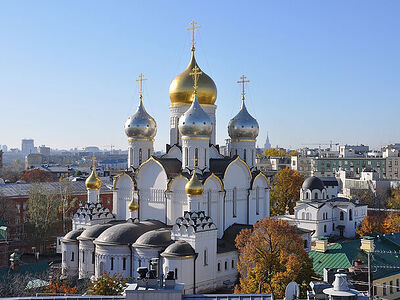 No Kids? Have You Prayed in the Holy Conception Monastery?Orthodox spouses have been praying to Sts. Joachim and Anna at Holy Conception Monastery for the gift of children for centuries.
No Kids? Have You Prayed in the Holy Conception Monastery?Orthodox spouses have been praying to Sts. Joachim and Anna at Holy Conception Monastery for the gift of children for centuries. Athonite cell goes up in flamesA serious fire broke out yesterday, Sunday, March 3, at the holy Cell of the Lifegiving Spring on Mt. Athos, located between the Koutloumousiou and Iveron Monasteries, near the Athonite capital of Karyes.
Athonite cell goes up in flamesA serious fire broke out yesterday, Sunday, March 3, at the holy Cell of the Lifegiving Spring on Mt. Athos, located between the Koutloumousiou and Iveron Monasteries, near the Athonite capital of Karyes.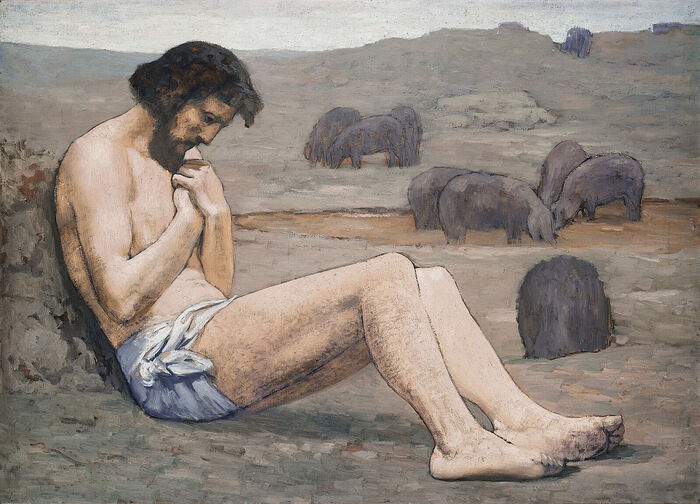
 The Sunday of the Publican and the Pharisee
The Sunday of the Publican and the Pharisee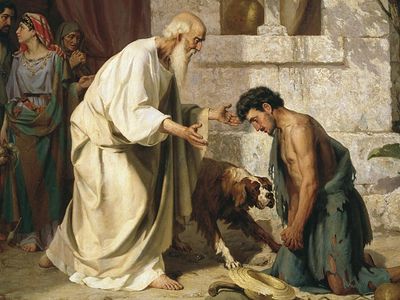 The Parable of the Prodigal SonThe parable of the Prodigal Son is inexhaustible. It contains such a multitude of themes, that it is difficult to enumerate them. Each man, who delves into it with reverence, finds the answer for himself to questions about his own spiritual condition.
The Parable of the Prodigal SonThe parable of the Prodigal Son is inexhaustible. It contains such a multitude of themes, that it is difficult to enumerate them. Each man, who delves into it with reverence, finds the answer for himself to questions about his own spiritual condition.